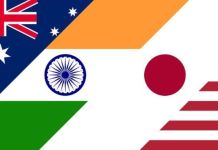The International Media is actively reporting the situation in the Kashmir Valley which has been literally cut from the rest of the world. With complete communication blockade, US Media has somehow managed to get access to ordinary people of Kashmir who share their experiences. EurAsian Times gets you in insight report from CNN and The Wall Street Journal.
Officials in Srinagar, the summer capital of Jammu and Kashmir state that of mass detentions, use of tear gas and pellet guns are being used against Kashmiri citizens and restrictions on movement are still in place.
Two local officials told CNN that over 2,000 people were detained in Jammu and Kashmir after new Delhi revoked Article 370 which included political leaders, elected representatives, lawyers, activists, businessmen and students.
“The government wants us to believe everything is normal. But we still find out about protests, tear gas, injuries despite the continued communication blockade,” said shopkeeper, Mushtaq Ahmad, 35, who lives in uptown Srinagar. “Everything is still shut in the city and around us, and the movement is almost impossible when the restrictions are in place.”
Mudasir Ahmed Parry talking to the Wall Street Journal says that says more patients have died under his watch in the past three weeks than in the entire year.
Can a 14 Year Old Youth Shot-Dead in Kashmir Be Really Called a Terrorist?
His hospital, the largest orthopaedic facility here, has run short of lifesaving drugs and surgical implants due to a military clampdown by Indian authorities that has severed communications and isolated the region. It also lacks the ability to contact specialists at other hospitals, delaying critical treatment, hospital staff says.
Farooq Ahmad Qureshi says that while walking out of his home in Srinagar to buy some bread from his local bakery. Instead, he says he found himself in the middle of a demonstration.
“I started moving towards the baker’s shop,” said the 35-year-old resident of the Karfalli Mohalla area of the old city. “I heard a sound and next, blood started oozing from my left eye. I fell down and started crying in pain.”
The doctor told him he had been hit in the eye by pellets. “The doctors who treated me said I have little chance of regaining (my) sight as three pellets had seriously damaged my eye,” he said. Human rights groups and local media have reported that Indian troops are firing pellet guns at protesters.
A doctor in the ophthalmology ward in the main hospital of Srinagar told CNN he has treated dozens of patients who have sustained eye injuries caused by pellet guns. “We have so far treated 30 victims in the ophthalmology unit of SMSH (Shri Maharaja Hari Singh) hospital from August 5,” the doctor said.
Cunning “Ajit Doval” Behind Fabricated Surgical Strikes on Pakistan: Pak Media
Other residents say security forces are firing tear gas on an almost-daily basis. “The local youth engage in stone pelting in the evening when the Indian security forces start to withdraw for the day. The security forces respond by firing tear gas,” Ayub, 33, who only goes by one name, said from the Saraf Kadal locality in downtown Srinagar.
“For the past 20 days or so, this has become almost a daily routine in my neighbourhood, which sometimes results in injuries to the protesters. How is this normal?”
Currently, only some landline telephone services have been restored in the Kashmir valley, and there is still no mobile or internet connectivity. Furthermore, in the city of Srinagar, there is a heavy presence of paramilitary soldiers, with checkpoints every 200 meters.
The local government said it has set up “helplines” at the district commissioner’s office, police stations and police posts so people can contact their families.
“I have been going from pillar to post for the past 15 days to get in touch with my parents. But with no luck,” said Najam Rous, 26, whose parents had travelled to Saudi Arabia for the Muslim pilgrimage Hajj. Eventually, she managed to contact her family from her neighbour’s landline phone. “My parents were crying and the first thing they asked me was if we had food at home,” she said.
In some places, restrictions prohibit gatherings of more than three people remain in place, police demand identification and a vehicle check at each checkpoint, and fears of violence are keeping residents inside their homes after sunset.
Imran Khan Will ‘Forcefully’ Present The Kashmir Issue At United Nations Next Month: FM Qureshi
In the city’s SMSH hospital, Mushtaq Ahmad said he travelled for eight hours through the night from his home in North Kashmir’s Kupwara district so his 8-year-old son, Khurshid Ahmad, could receive eye surgery. The 120-kilometre journey would usually only take two hours, he said, and it cost him a Rs 4,000 ($56) taxi ride.
“Normally we pay Rs 200 ($2.8) to reach the capital city. We are poor people. People in my area are as agitated as elsewhere in the valley against the scrapping of Article 370,” he said.
Rafiq Ahmad, 32, said he had to rush his nephew Rahat Iman, 5, to the hospital because of a throat infection and high fever. Driving from his home in South Kashmir’s Shopian town 85 kilometers away, Ahmad said, “Everything is closed en route. And there are roadblocks on the highway to Srinagar.”
Residents say they venture out only late afternoon or early mornings, but they are able to get essential supplies such as bread, vegetables, and rice, from their small neighbourhood stores. “Whatever we need, we are still getting it,” Irshad Ahmad, a resident in uptown Srinagar said.
Shauqat Ahmad, owner of a grocery store on the outskirts of the city said a lot of businesses were relying on their stock from the Muslim festival Eid al-Adha, which many residents were unable to celebrate because of the crackdown. “We had enough stocks of essential items for Eid. But since people could not purchase them at the time, we are hoping they will last for some more time,” Ahmad said.
But other products have begun to run out. “We have a shortage of 80% drugs in our shop. No new supplies are coming because of the continuous shutdowns and restrictions,” said Raees Ahmad, owner of a pharmacy in Srinagar.
“We cannot transfer money to the suppliers outside the state to get supplies. We are telling our customers to try and get medicines from other medical stores in the vicinity.”
EurAsian Times cannot independently verify the claims of CNN and WSJ.




